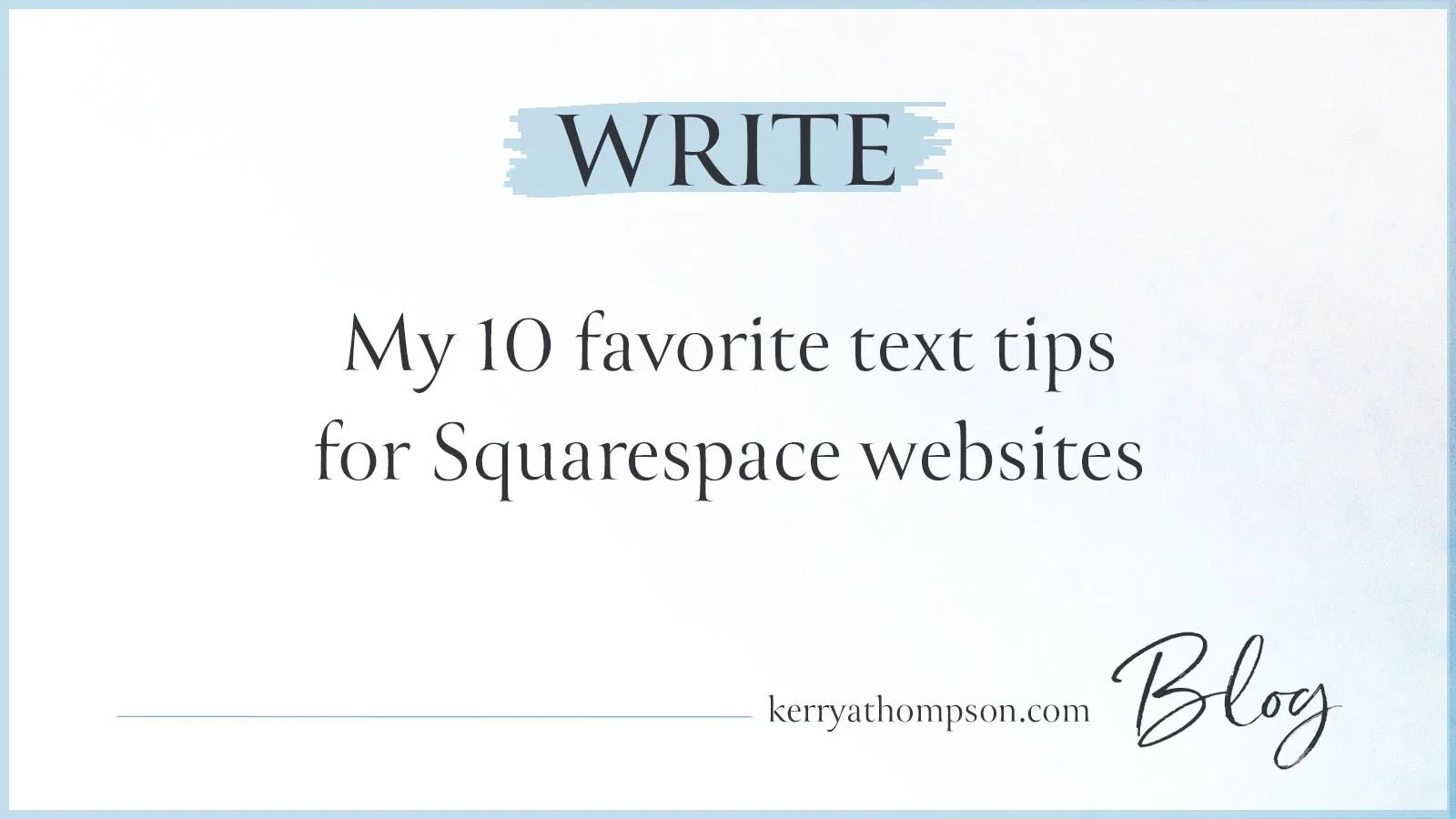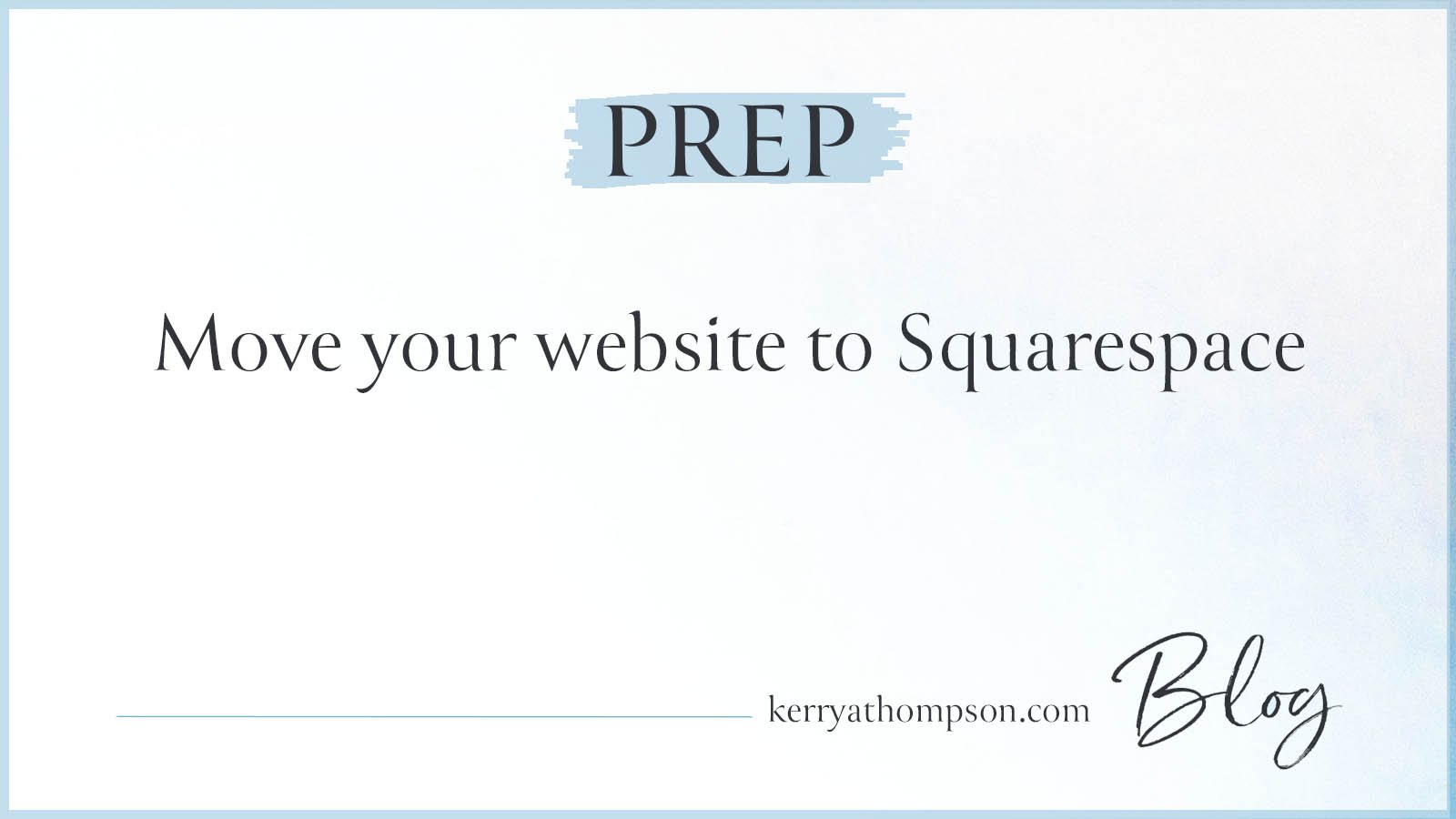7 ways a blog improves your SEO
Are you thinking about starting a blog on your website? You have things to say or show and want to share them with others? Great! In addition to the satisfaction that comes from sharing your knowledge with others, you give search engines like Google the chance to think highly of you and your website blog.
Definitions
Let’s start with some vocabulary that I’ll use in this post so that you can understand the SEO benefits of blogging.
Blog
A blog is a collection of your original articles that are stored on one summary page of a website. Squarespace and other do-it-yourself website builders make it easy to create a blog page. A blog post is one article or topic that you write, which is stored on your blog. Blog posts don’t necessarily have to be purely written content. They can also contain photos, artwork, event notices, or video clips. What is useful to remember, though, is that search engines thrive on the words on your website, including those you use in your blog posts.
Search engine
A search engine is any company that is in the business of searching the internet for information and delivering it to a browser when someone searches for information online. Handling almost 93% of searches on the internet as of April 2022, Google is by far the market leader. When I work on SEO for my clients’ websites, I aim to please Google and I assume that the other search engines will be pleased too. I personally use Ecosia.org as my search engine because they plant trees around the world for every search performed. There’s also DuckDuckGo, founded on the principle of protecting the privacy of your searches. Other well-known search engines in the United States are Bing and Yahoo.
SEO
An acronym for Search Engine Optimization, SEO is a set of practices that make your website attractive to Google and other search engines so they are more likely to share a link to your website when someone searches for information that is relevant to what your website offers.
Keywords
These are the words that people type in a search bar on a search engine’s website. They might be single words like “hopscotch” or a phrase like “games kids like to play.” Your goal is to have words on your website match the keywords that potential customers are searching for. If your website has the kind of information they’re looking for, you want to show up near the top of their search results.
SERP
An acronym for Search Engine Results Page, a SERP is a summary page of websites, links, and excerpts that are generated when someone performs an online search using keywords. The goal, sometimes a lofty one, is to appear on the first page of these results, rather than on a second, third, or later page of results, which potential customers rarely go to. There are many factors involved in having a page of your website show up as a link on the first page of a search. Some of it is luck, some of it is the search engine’s way of looking at your website (often called the algorithms), some of it is technique and SEO expertise, and much of it is about the words your website contains.
URL
An acronym for Uniform Resource Locator, a URL is the full and unique address to find a piece of information on the internet. It starts with https:// most commonly (meaning the website is secure) or perhaps http://. After that, your domain name follows. To go to the home page of a website, you use a URL like https://www.kerryathompson.com or the shorter version without the “www”: https://kerryathompson.com. To go to a blog post, the URL will be longer. It will start with your website name, but will be followed by the page on your website where your blog posts are stored (usually “/blog/”), and then the identifier for your specific blog post. So, for example, for this blog post, the full URL is https://kerryathompson.com/blog/squarespace-weebly-blog-improves-seo. If I want to create a link on my Facebook business page that goes to this blog post directly, I need to use that full URL.
Blog posts with good SEO reach customers who stick around
Now that we’ve covered the terminology used in the SEO world, I’ll share with you the obvious and not-so-obvious ways that you can choose words when writing your blog posts that give you the best chance of SEO success. Paying attention to SEO techniques when you create and share blog posts is your pathway to reaching your ideal readers and customers. The easier it is for search engines to find your top-quality content, the better the chances are that potential customers will go to your website when they do a search using keywords that are on your site. Once they’ve found your website through whatever search result they clicked on, the goal is to keep them interested enough to take the next step of becoming a customer.
#1: Regular blog posts give search engines fresh words
New blog posts give Google and other search engines new content to munch on. Think of them as hungry monsters. Tossing them new words keeps them fed. And that makes them think you have a yummy website that other people should know about. The same is true for regular pages you update with new events or new products, but blogging is a more common way of adding new words to a website consistently.
#2: Blogging increases your credibility
Blog posts increase your credibility. Search engines like people who know their stuff. Google has a set of guidelines known as EAT—it wants to promote and reward content that shows your Expertise, Authority, and Trustworthiness.
#3: Blogging can make you popular
A blog post gives people something to link to when they want to share your expertise with others in their own posts. When they create a link to something you've written, it's known as a backlink. When search engines find lots of backlinks online that lead to your content, that increases your popularity and ranks you higher in search results.
Pro tip: Use relevant keywords in your blog post URL, but keep the number of words to about five or six. Take out extraneous words like “and,” “the,” and “that.” Separate words in the URL with a hyphen (not an underscore) to give search engines the best chance of understanding the words. This technique also makes the URL readable and gives potential visitors an overview of what is in the blog post.
#4: Blogging increases the visibility of your business
Blog posts promote your business and your expertise when you share them on social media. That increases the chances that people will find and share your content and create backlinks to it.
#5: Blog posts give you lots of ways to use relevant keywords
Blog posts give you opportunities to promote keywords in titles, section headings, paragraph text, excerpts, tags, and categories. Keywords are the way that search engines know that your content is relevant to someone looking for something when they search for a word or phrase.
#6: Images in blog posts can be found in searches
Blog posts have images, which are also searchable. By using keywords in the image filename and Alt Text attribute, you have more ways for search engines to link to your blog post through an image you've used in the post.
Pro tip: If you use multiple keywords in an image filename, separate each word with a hyphen (not an underscore) to give search engines the best chance at understanding the words.
#7: Other people’s comments enhance your blog post’s keywords
If you allow people to comment on your blog posts, those comments are added to the words connected with the blog post and are included in the words search engines find for this blog post. Chances are there will be some good keywords in those comments that may go beyond the keywords in your post.
Best practices for using SEO in blog posts
If you are just starting out with a new blog, keep these best practices in mind as you’re authoring your posts. Your diligence will pay off over time. If you are just now thinking about adding SEO practices to a blog you’ve had for a while, start using these best practices on your new blog posts. Over time, go back to your older posts, starting with the most popular ones, to integrate more of these best practices.
Make the content interesting to your potential customers
The blog posts you write for the public are a kind of marketing tool. They help people understand what you know and they establish your credibility and expertise. While you may enjoy writing about a great number of subjects, what you share on your blog should be of interest to your potential customers. Keep each blog post to a reasonable length that is comfortable for your audience. You can research other similar businesses to get a sense of how long a blog post should be. Some industry experts say a blog post should be about 2,500 words and are seeing trends for longer posts being more popular. It all depends on your audience though.
Let your keywords roam
Take advantage of all opportunities for using keywords in your blog posts. In the blog post that people read, keywords can be part of titles, section headings, and paragraphs and the blog post excerpt. Blog posts also have settings that allow you to add categories and, for Squarespace, tags that search engines will find. The blog post URL should also contain keywords; separate each keyword with a hyphen and remove extraneous connector words like “and” or “the.” Then also take advantage of image settings to employ keywords, such as in the filename and in the Alt Text setting or a caption.
Promote your blog post to extend your reach
Share your blog posts on social media and with a mailing list if you have one. The more people who know about your blog post, the greater the chance that they’ll share the blog post with others in their networks or in their own blog posts as backlinks. When your website has many backlinks going to it, search engines assume that you have great content and they’ll reward you with increased visibility in search results.
Don’t let your blog lapse
There’s nothing sadder than seeing a website blog that started out strong with a few blog posts when it launched and then withered up and dried out after a few months. If you don’t think you can maintain a long-haul consistency of publishing blog posts—be it weekly, monthly, or quarterly—do yourself and your SEO a favor and drop your blog in favor of other marketing activities you enjoy more.
Go forth and blog
I hope this peek into the world of SEO and blogging has taken some of the mystery out of what happens with search engines and why. Now go have fun with your blog and may it be favored by the search engines too!



















